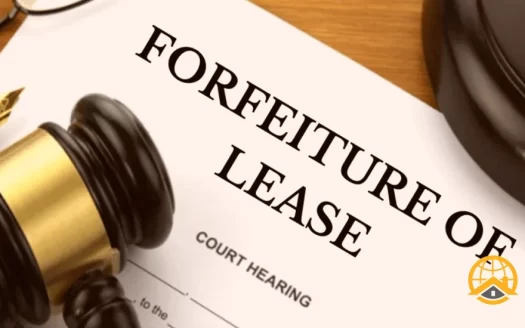What are tenant rights in the UK?
The UK housing market has been facing several challenges. The shortage of supply and affordability is making it difficult for tenants to find suitable places to live. In this time of unpredictability, it is important for you to stay aware of tenants rights.
The UK government is making great efforts to protect tenants from exploitation. Unfair evictions and rent increases have been a major problem in the last few years. Let’s look at tenants’ rights and responsibilities. This will give you peace of mind while living as a tenant.
Rights of Tenants
- Let’s learn about the tenants rights so your landlord cannot take advantage of your negligence.
- As a tenant, you have the right to live in a secure property and a good state. The repairs are being made before you get there (if needed).
- You must get your deposit returned when your tenancy agreement ends. Under particular circumstances, your deposit can be protected.
- You can challenge excessively high charges implemented by your landlord.
- You have a right to know about the identity of your landlord.
- You should live undisturbed on your property.
- You must see an Energy Performance Certificate for the property. It tells you how energy-efficient the particular property is.
- You have all the right to protect yourself from unfair eviction and rent increases.
- You must get a written agreement, especially if you have a tenancy of more than 3 years or a fixed-term tenancy.
- Your tenancy agreement should be fair and comply with the law.
- Your landlord is bound by the law to provide you with the agreement. He will be fined if he does not do so within 21 days.
- When you start a new tenancy, your landlord has to guide you on renting if you live in England.
Responsibilities of a tenant
The UK government has given reasonable rights to the tenants to protect themselves. But with rights come the responsibilities you must fulfill to stay on good terms with your landlord and avoid legal trouble.
Here is a list of responsibilities you must fulfill as a tenant.
- You should give your landlord access to the property to check it or renovate or repair it.
- Your landlord is accountable for giving you at least 24 hours notice before your visit. Your landlord can do an unannounced visit in case of an emergency or if they need immediate access.
- You are responsible for taking good care of the property. For example, if you’re away in cold weather, turn off the water at the mains.
- You must pay monthly rent even if you dispute with the landlord.
- You must pay additional charges like council tax or utility bills.
- You have to pay for any damage done to the property caused by you, your family, or friends
- You can only sublease a property if your tenancy agreement or landlord allows it.
- If you fail to meet your responsibilities, your landlord can take legal action to evict you.
Different Types of Tenancy
There are four different types of tenancies in the UK. Every type of tenancy has different kinds of tenant rights. Therefore, you must understand the types of tenancy before renting a property. These types are:
- Assured shorthold tenancies (ASTs)
- Excluded tenancies or licenses
- Regulated tenancies
- Assured tenancies
Assured Shorthold Tenancies (ASTs)
It is the most common type of tenancy in the UK. Most of the new tenancies in the UK are automatically Assured Shorthold Tenancies. A tenancy can be an AST if the property you rent is private, the tenancy starts on or after 15 January 1989, the rental property is your central accommodation, and your landlord does not live there.
A tenancy will not be considered as Assured Shorthold if the agreement on it was made before 15 January 1989, the rent of the property is more than £100,000 annually or less than £250 a year if it's a business tenancy, the property is a holiday let, and your landlord is a local council.
These tenancies are suitable for those who want a home for a short time but with security. They are best for private renters, providing a balance between tenant rights and landlord flexibility.
Excluded tenancies or licenses
A tenancy is excluded if you share rooms (like kitchen and bathroom) or lodge with your landlord. This type of tenancy has a low risk of eviction. This might suit you if you are comfortable sharing your space or low protection.
Regulated tenancies
Regulated tenancies are those starting before 15 January 1989. In these tenancies, you can apply for "fair rent" and have increased protection from eviction.
Assured tenancies
Assured tenancies are those starting between 15 January 1989 and 27 February 1997. This type of agreement offers increased protection from eviction. If you are looking for a long-term, safe tenancy, an Assured tenancy is the most beneficial option for you. It protects you from sudden eviction and gives you a secure home for a more extended period.
Conclusion
Knowing about tenants’ rights will save you from trouble during your stay at a property. Along with rights, it is crucial to know about your responsibilities as well. You may find it overwhelming to look for a home by yourself. We recommend contacting a property management company to ease your burden.
HomeWorld Management specializes in offering tenants property management and maintenance services. Whether you are a full-time tenant or looking for your next rental property, we will assist you in moving to your new home without any stress. Contact us today and get your new home in England.

Frequently Asked Questions
Can a landlord refuse to rent out a property to someone in the UK?
Your landlord can’t refuse to rent to you if you have the right to rent in the UK. If he does so based on race or nationality, for example, this is called discrimination. You can get help against discrimination from your nearest Citizens Advice.
What are the rights of tenants living rent-free in England?
If a landlord lets someone stay for an extended period without charging rent or signing a proper tenancy agreement, they may acquire rights under UK housing laws. This includes the right to occupy the property and protection against eviction without adequate notice.
What are the new rules for landlords in the UK in 2025?
Under the new rules, landlords can only increase the rent once a year, and it must align with market rates. The idea is to provide tenants with more stability and prevent unfair rent hikes. The bill will also stop rental bidding wars.
Can a tenant legally withhold rent in the UK?
If your landlord fails to repair the property, you don’t have the right to withhold rent. It will put you at the risk of eviction if the landlord starts possession proceedings against you.



